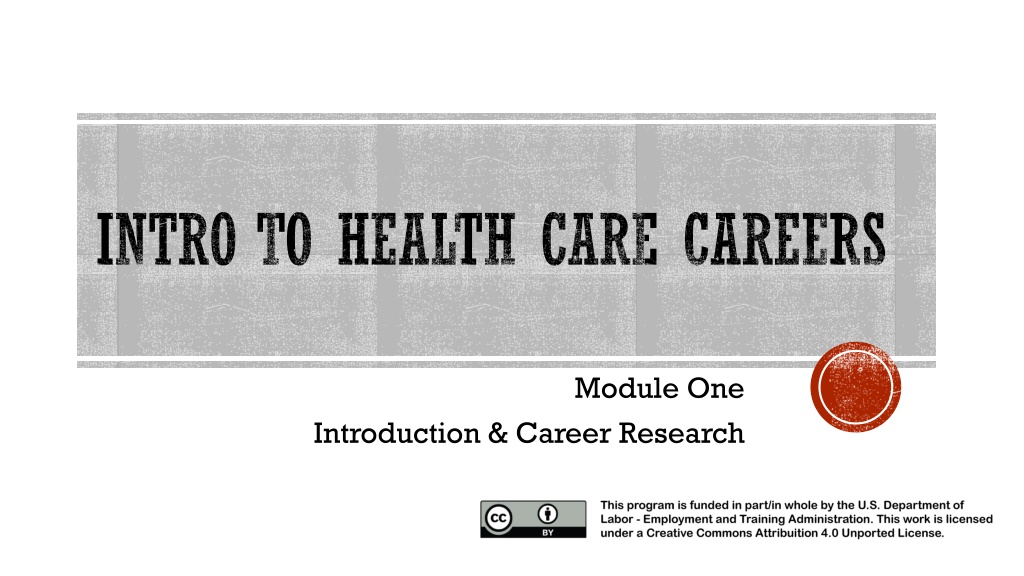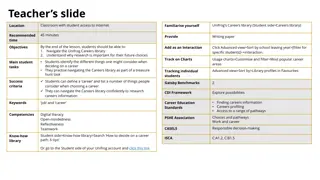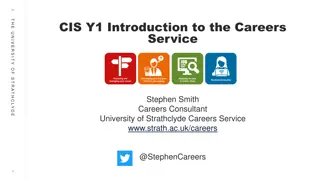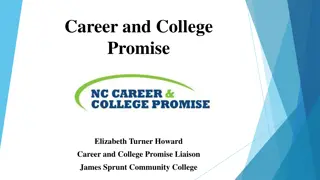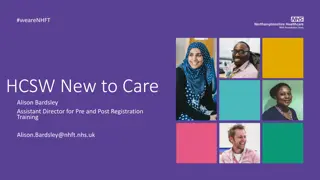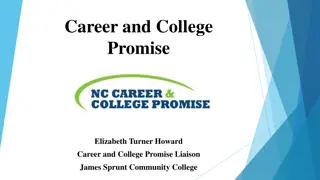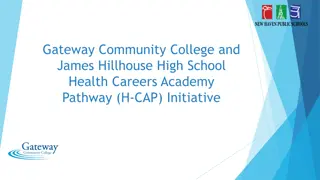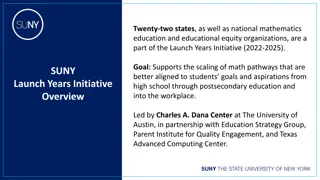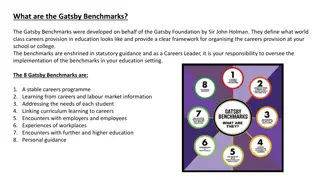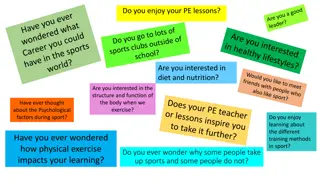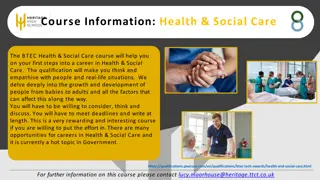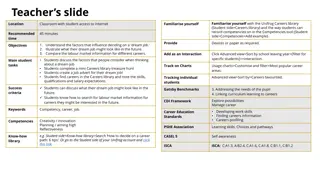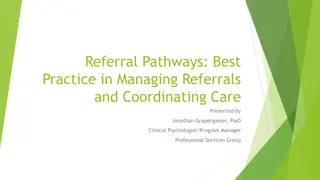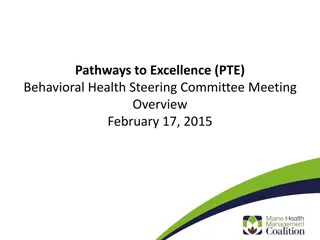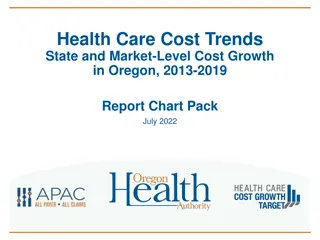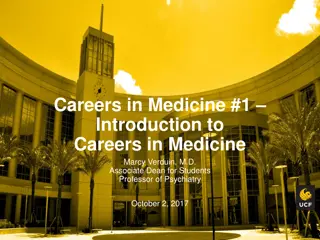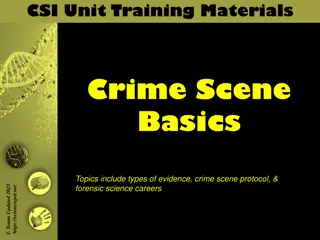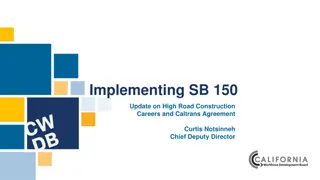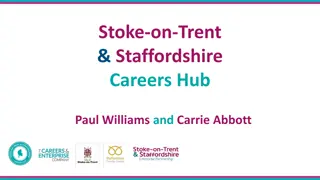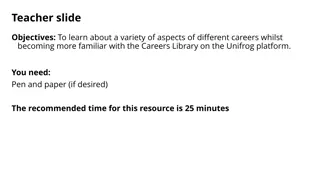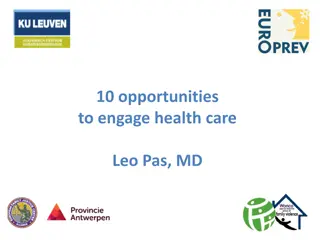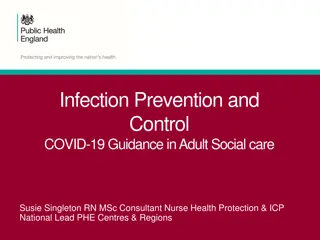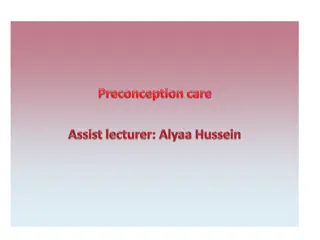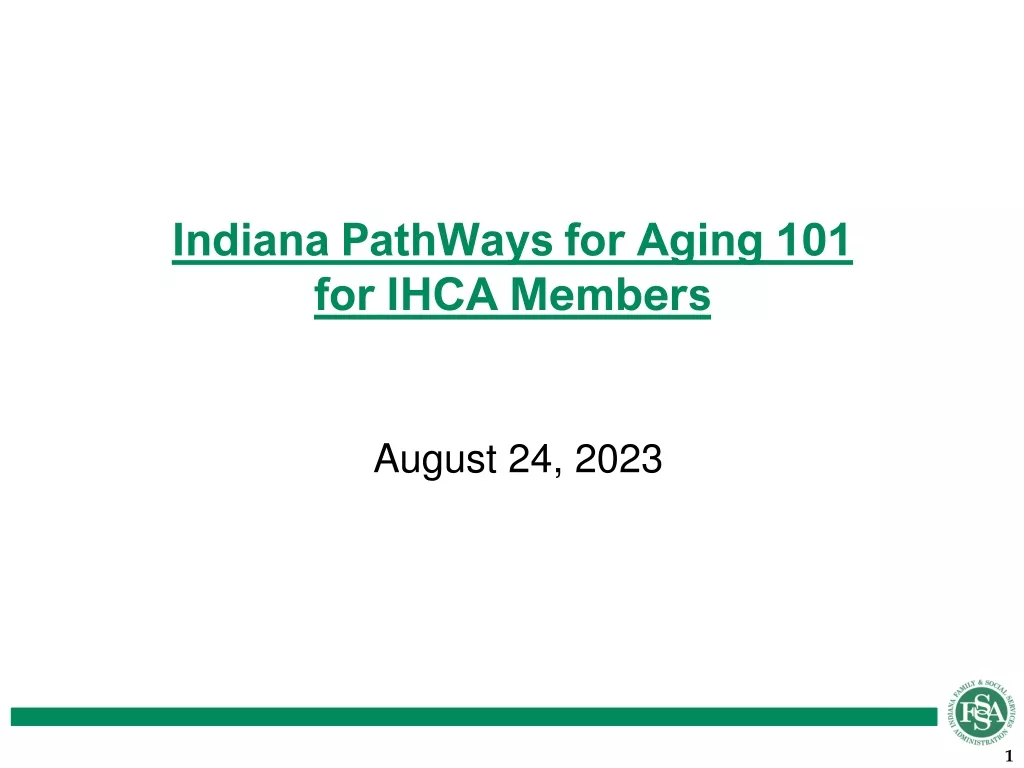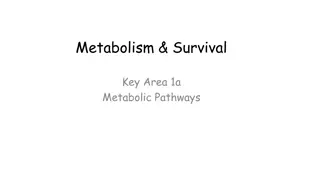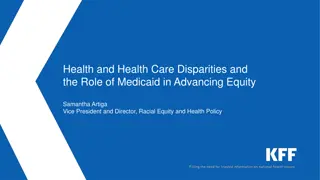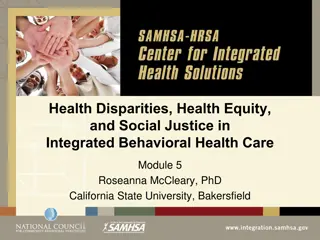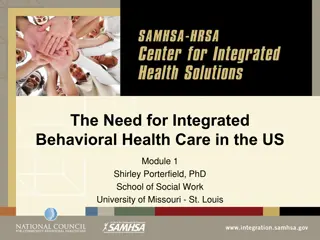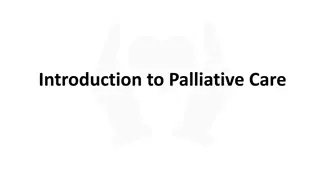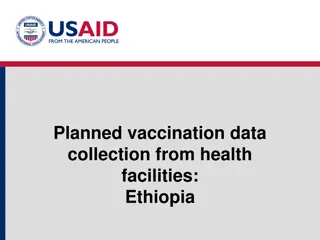Exploring Health Care Careers: Pathways and Opportunities
Dive into the world of health care careers with this module covering various job opportunities, learning outcomes, what to expect from the course, and essential questions to ask yourself. Discover the booming employment outlook in health care and develop skills needed for success in this dynamic field.
Download Presentation

Please find below an Image/Link to download the presentation.
The content on the website is provided AS IS for your information and personal use only. It may not be sold, licensed, or shared on other websites without obtaining consent from the author. Download presentation by click this link. If you encounter any issues during the download, it is possible that the publisher has removed the file from their server.
E N D
Presentation Transcript
INTRO TO HEALTH CARE CAREERS Module One Introduction & Career Research
WHAT IS THE OUTLOOK FOR WORKING IN HEALTH CARE? Health care employment is booming!! Since 2007, PA healthcare employment grew over 50% in home health care services, and almost 20% in Ambulatory health care services. US Bureau of Labor Statistics predicts the most employment growth by 2022 will be health care support jobs, like diagnostic medical sonographers & physical therapist assistants. US News & World Report ranked the best healthcare jobs #4=Dental Hygienist #6 RN #8 Medical Sonographer #10 Occupational Therapist Asst #15 Radiology Tech #19 LPN #21 Physical Therapist Asst #23Home Hlth aide #25 Medical Secretary http://money.usnews.com/careers/best-jobs/rankings/best-healthcare-jobs #22 Pharmacy Tech
LEARNING OUTCOMES Develop a personal college and career pathway Identify various types of healthcare facilities, services & careers Describe essential core qualities & behaviors needed to be an effective health care professional Explain the meaning of ethics & its importance in a health care setting Understand the importance of being able to read, write, and communicate using medical terminology Understand and explain personal and workplace safety.
WHAT TO EXPECT FROM THIS COURSE Week 1 Complete a personality profile and career interest survey College overview Behaviors for success Week 2 Research careers and educational requirements Overview of Healthcare Industry Review language of health care Week 3 Ethical and legal responsibilities when working in health care Personal & workplace safety Communication & Customer service Week 4 Employment strategies Completing your educational and career plan
QUESTIONS TO ASK YOURSELF How much do you want to deal with sick or injured people? Are you comfortable with touching people? Are you comfortable in a health care setting? Are you comfortable with constant change? Do you like working on a team or alone? Are you willing to work outside of the normal 9 to 5? Can you handle life and death situations? Are you emotionally able to deal with a wide variety of people? Are you comfortable with being responsible for the well being of another person?
ANALYZE PERSONAL CHARACTERISTICS Holland s personality-based theory assumes A person s occupation is an extension of their personality People working in a specific occupation have similar personality characteristics There are six categories of vocational personalities & environments
WHAT TO RESEARCH ABOUT A CAREER Job description Working conditions Personal and physical qualities Education and training Additional credentials needed Salary and wages Job outlook Professional organizations Advancement
TYPES OF CREDENTIALS Certification Voluntary Registration Sometimes required, sometimes voluntary Licensure Required by law Mandatory
HOW DO I KNOW THIS IS REALLY THE CORRECT PATH FOR ME? Exploring Careers through Personal Interaction Talk with people about the career(s) that interest you Ask your family and friends about their careers. Find other people in your community to interview about their time at work. Set up opportunities for observing different jobs Job shadowing - experience "a day in the life of someone working in a particular career. Site visits see where someone in a career works
PLANNING A CAREER PATH It is important to take career research seriously. BUT, realize that most people change jobs several times in a life span. You do not have to stay forever with your first career choice. Think of your career as a path or a ladder. You may need to take several jobs as steps along the way to your ultimate career goal. First you must decide what your end goal is. Then you should identify at what level you can enter the profession. Finally you should plan the steps that will eventually lead you to your end goal. It is okay to make changes to the plan along the way. You will achieve success and happiness in your career when you start with a plan.
STARTING THE PLAN Take the Interest Survey Research Careers that match your interest survey results Are any of the careers of any interest to you? Are the careers reachable? Are there related occupations that may interest you? Are there other careers you can start in and work your way toward your goal? Research the educational requirements for you interests. What type of education is needed? Are there any licensures, certificates or registrations needed before you can work?
LETS TAKE A TEST Go to: http://personality-testing.info/tests/RIASEC/ or http://www.mynextmove.org/explore/ip Take the test Obtain your Holland Code that summarizes your results Follow the link to O*Net OnLine to explore the careers for your Holland Code US Department of Labor Employment and Training Administration has a database of occupations sorted by Holland Code. Watch for careers marked Bright Outlook Click on the various career links to review the summary report for that career Job zones are ranked from 1 for little training to 5 for extensive training
